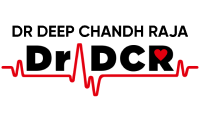
Welcome to the official website of Dr. Deep Chandh Raja, a trusted pacemaker specialist in Chennai.
Dr. Deep Chandh Raja has over 17 years of experience. He offers expert care for patients with heart rhythm disorders. He provides advanced solutions, including pacemaker implantation.
If you are dealing with conditions such as bradycardia, heart block, or irregular heartbeats. In that case, Dr. Deep Chandh Raja provides personalized treatment. This helps restore your heart's rhythm and improve your quality of life.
What Are Pacemakers?
Pacemakers are small, battery-operated medical devices implanted in the chest or abdomen to regulate abnormal heart rhythms (arrhythmias). They deliver electrical impulses to the heart, ensuring a steady and efficient heartbeat. For people with bradycardia or other heart problems, pacemakers are life-saving devices. They improve quality of life and reduce symptoms like fatigue and fainting.


How do pacemakers work?
A pacemaker consists of three main parts:
- Pulse Generator: This contains the battery and circuitry that produce electrical signals.
- Leads (Wires): Insulated wires that deliver the signals from the pulse generator to the heart.
- Electrodes: Detect your heart’s natural rhythm and deliver impulses as needed.
The pacemaker continuously monitors your heartbeat. When it detects a pause or irregularity, it sends a painless electrical impulse to restore a normal rhythm.
Types of Pacemakers
Pacemakers come in various forms tailored to specific needs:
- Single-Chamber Pacemakers: Use one lead in the right atrium or ventricle.
- Dual-Chamber Pacemakers: Utilize two leads, coordinating signals between the atrium and ventricle.
- Biventricular Pacemakers (CRT): Designed for heart failure patients to improve the heart's pumping efficiency.
- Leadless Pacemakers: Advanced devices implanted directly into the heart without leads.
What conditions do pacemakers treat?
Pacemakers are prescribed for a range of conditions, including:
- Bradycardia (slow heart rate)
- Heart block (delayed electrical signals)
- Arrhythmias, like atrial fibrillation (AFib)
- Congenital heart defects
- Heart failure requiring cardiac resynchronization
Signs You May Need a Pacemaker
Consult Dr Deep Chandh Raja, a leading pacemaker specialist in Chennai, if you experience these symptoms:
- Persistent dizziness or light-headedness
- Fatigue or shortness of breath
- Fainting spells (syncope)
- Palpitations or irregular heartbeats
- Difficulty exercising or reduced stamina
What’s the Difference Between a Pacemaker and an ICD?
While both devices manage heart rhythms, they serve different purposes:
- Pacemakers: Correct slow or irregular heartbeats.
- Implantable Cardioverter-Defibrillators (ICDs): Deliver shocks to restore a normal rhythm in life-threatening arrhythmias like ventricular fibrillation.
Risks and Benefits of Pacemaker Implantation
Benefits:
- Improved heart rhythm and blood circulation
- Enhanced quality of life and energy levels
- Reduced risk of heart complications
Risks:
- Infection at the implantation site
- Allergic reactions to materials
- Device malfunctions (rare)
When performed by an experienced pacemaker specialist in Chennai like Dr. Deep Chandh Raja, these risks are minimal.
How to Prepare for a Pacemaker Procedure
Proper preparation ensures the success of your pacemaker implantation. Here’s what you can expect:
Medical Evaluation:
- Dr. Deep Chandh Raja will review your medical history, current medications, and any pre-existing conditions.
Pre-Procedural Tests:
- Electrocardiogram (ECG):To analyse your heart’s electrical activity.
- Holter Monitoring: Continuous tracking of your heartbeat over 24 to 48 hours.
- Echocardiogram: A detailed ultrasound of your heart.
- Blood Tests: Check for infections, clotting issues, or other concerns.
Medication Adjustments:
- You may need to stop certain medications, such as blood thinners, a few days before the procedure.
Fasting Guidelines:
- Avoid eating or drinking for at least 6-8 hours before surgery.
What to Expect: Before, During, and After the Procedure
- Hospital Admission: You’ll check in on the day of the surgery.
- Preparation: A professional will shave and clean a small area of your chest to prevent infection.
- IV Line: Inserted to administer medications or fluids as needed.
- Sedation: Mild sedatives will help you relax, although you’ll remain awake for the procedure.
- The procedure typically takes 1-2 hours.
- A surgeon makes a small incision near the collarbone. Dr Deep Chandh Raja guide leads into the heart through a vein under X-ray guidance.
- Dr Deep Chandh Raja implant the pulse generator under the skin and connect it to the leads.
- Once the medical team places the pacemaker, they test it to ensure it functions properly before closing the incision.
- Immediate Recovery: You’ll be monitored for a few hours in a recovery room. Your heart rhythm and vital signs will be closely observed.
- Hospital Stay: Most patients are discharged the same day or within 24 hours.
- Follow-Up: A follow-up visit will be scheduled to check the device’s programming and battery life.
Special Precautions After Pacemaker Implantation
- Avoid lifting heavy objects or raising your arm on the side of the implant for a few weeks.
- Keep electronic devices, such as mobile phones, at least 6 inches from the pacemaker site.
- Inform healthcare providers and security personnel about your pacemaker before scans or screenings.
- Regularly visit Dr Deep Chandh Raja for pacemaker checks and maintenance.
Why Choose Dr. Deep Chandh Raja?
Dr Deep Chandh Raja, a leading pacemaker specialist in Chennai, combines advanced expertise with compassionate care. Whether you’re seeking diagnosis, treatment, or follow-up care, trust Dr Deep Chandh Raja to guide you every step.
Contact us today to schedule a consultation and take the first step toward a healthier, more confident life.







